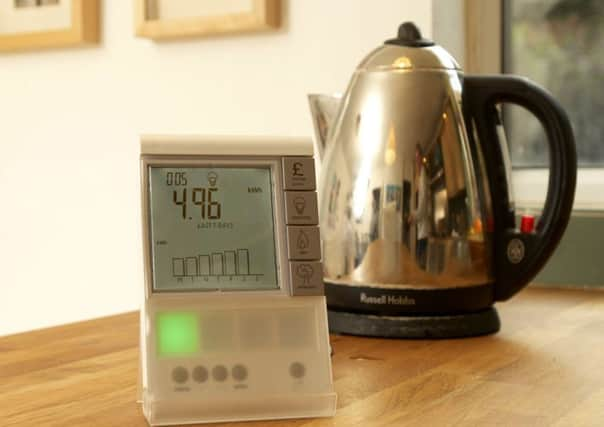John MacNeil: Smart meters will take us out of the Victorian era at last


Traditional gas and electricity meters haven’t changed since Victorian times, so the current system means living with estimated bills, manual meter readings and no real-time visibility of how much energy we’re using or what it’s costing. The out-dated technology is particularly problematic for prepayment customers who have to top up their key or card at a shop, and pay higher prices for doing so.
Almost six million smart meters have already been installed across Britain and independent research published from Smart Energy GB shows that 82 per cent of people with smart meters are taking steps to reduce their energy use and 81 per cent would recommend smart meters to other people.
Advertisement
Hide AdAdvertisement
Hide AdSmart meters come with an accompanying digital in-home display, which shows you exactly how much energy you’re using as you go along, and what it’s costing you in pounds and pence. Being able to see what you’re spending in real time is a great reassurance, so you can keep your home warm during winter without worrying about running up an unexpectedly high bill.
They will also communicate automatically with your supplier via a secure national network which is solely for smart meters, meaning that you won’t need to access your meters to submit manual readings, or let someone into your home to read the meter. You don’t need Wi-Fi in your home for it to work, and it won’t use your Wi-Fi if you do have it.
If you have a prepayment meter you’ll be able to see how much credit you have left on your in-home display and can top up at any time of the day or night, by phone or online. You can still also top up in your local shop and any credit, wherever you pay, will be automatically added to your account, so you won’t need to worry about putting a key or card back into a meter, which might be difficult to access.
Smart meters are also a great tool to help you reduce wasted energy - radio producer Robert, from Ayrshire, has found that the traffic light system on his in-home display has made a big difference to his young son’s understanding of energy use at home, and has provided Robert himself with a new understanding of which appliances use most energy. Similarly, Sheila from Edinburgh has found the pounds and pence function on the in-home display particularly handy in terms of educating her two teenagers about how much energy their various electronic gadgets use.
Whether you rent or own your home, you can benefit from a smart meter. If you pay your gas and/or electricity bills and they’re addressed to you rather than your landlord, you don’t need your landlord’s permission. If your landlord pays the bills, you should check with them first before arranging your installation.
Smart meters are also paving the way for a smarter, greener and more energy-efficient Britain. They are a crucial step to the development of smarter energy grids, meaning a better ability to match our power requirements as a nation. Smart meters will enable the introduction of tariffs designed to suit different lifestyles, so there will be the flexibility to do washing or charge devices when power is cheapest.
John MacNeil is Head of Policy and Communications Scotland for Smart Energy GB. Contact your energy supplier today to find out about getting a smart meter installed.